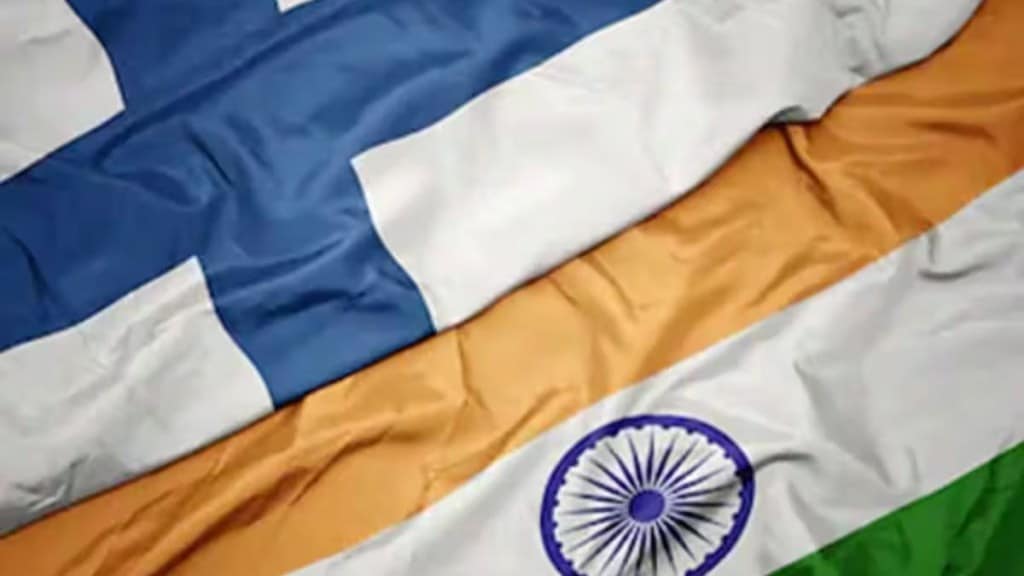Ahead of the forthcoming 2nd edition of the India Nordic Baltic Business Conclave this month, India and Finland conducted a comprehensive review of trade and investments, educational collaboration, digital partnerships, sustainability initiatives, and more, as part of their Foreign Office Consultations.
During the 12th Foreign Office Consultations, both parties also assessed matters pertaining to mobility, cultural relations, and people-to-people interactions. Discussions encompassed multilateral cooperation, notably concerning Arctic affairs and reforms within the United Nations Security Council.
According to the Ministry of External Affairs statement, the consultations provided a platform for the exchange of perspectives on regional and global matters of common concern, including developments within the regions neighbouring India and Finland, such as the Ukraine conflict.
Leading the Indian delegation was Sanjay Verma, Secretary (West) at the Ministry of External Affairs, while the Finnish delegation was headed by Jukka Salovaara, Permanent State Secretary of the Ministry for Foreign Affairs of Finland.
India-Finland
The year 2024 marks the 75th anniversary of diplomatic relations between the two nations, and a decision was made by both sides to commemorate this significant milestone fittingly.
Later this month, in collaboration with the Ministry of External Affairs, an industry association will host the 2nd edition of the India Nordic Baltic Business Conclave. Set to occur on November 22-23, 2023, in New Delhi, this Conclave will serve as a platform for various stakeholders to engage in dialogues centered around key sectors of interest, foster new business partnerships, and pave the way for potential policy adjustments to facilitate these partnerships.
India-NORDIC Relations & Arctic Policy
India’s Arctic Policy holds significant importance in the context of the nation’s expanding global presence. The growing India-Nordic relations play a pivotal role in advancing this policy, highlighting New Delhi’s strategic commitment to the Arctic region. This alignment further strengthens India’s ties with the European Union (EU), which are steadily gaining momentum.
The United States is the sole country, besides India, with which the Nordic nations have an exclusive collaboration at the summit level. This unique synergy contributes to the establishment of a comprehensive strategic partnership.
Several Nordic multinational corporations, including Volvo, Ericsson IKEA, Tetra Pak, Kone, Ahlstrom, Wartsila, and Nokia, actively operate within India, bolstering the Indian market and substantially contributing to economic growth, technological collaboration, and job creation.
Simultaneously, the heightened collaboration between the Nordic countries’ Smart Cities Project and India’s ambitious Smart Cities Project enhances shared economic progress. Additionally, India’s investments in Nordic countries have seen a notable increase.
Presently, more than 70 Indian companies have established their presence in Sweden, and Indian firms are making a growing impact in Denmark, Finland, and Norway, particularly in the IT, automobile, and pharmaceutical sectors. This reciprocal business and investment partnership is instrumental in elevating the bilateral relationship to strategic heights.
Importantly, Nordic states are increasingly interested in engaging within the framework of the India-European Union Free Trade Agreement, anticipated to be concluded in the near future, which promises to foster mutual economic growth.
The collaboration between India and Nordic states on innovation and clean technology has been progressively gaining momentum, converging India’s talent pool and digitization efforts with Nordic states’ expertise in innovation and green technology transfer. This cooperation emphasizes the mutual interest in investing in “innovative and sustainable solutions” and identifying opportunities in sectors such as food processing, agriculture, health projects, and life sciences.
India’s Arctic Policy, introduced on March 17, 2022, responds to the urgent need for clear articulation in the rapidly changing Arctic, which is experiencing warming three times faster than the global average. This accelerated warming has substantial implications for global shipping routes and the increased availability of mineral and hydrocarbon resources, with far-reaching geopolitical and resource-related consequences for India and the world.
The necessity for an Arctic Policy in India can be categorized into three key aspects: scientific research, climate change, and environmental concerns; economic and human resources; and geopolitical and strategic considerations. Each of these aspects contributes to India’s interest in the Arctic region.
Russia plays a dominant role in the Arctic, accounting for almost half of the region’s area, coastline, population, mineral wealth, and hydrocarbons. Despite a relatively small population in the Russian Arctic, it significantly contributes to Russia’s GDP and exports. Russia’s vested interest in the Arctic has led to soliciting funding and cooperation for infrastructure development, especially along the Northern Sea Route (NSR).
However, India’s approach to the Arctic has had some gaps. While the Ministry of External Affairs (MEA) has recognized India’s interests in the Arctic as scientific, environmental, commercial, and strategic, it was one of the four out of 13 Observer nations of the Arctic Council without a nationally articulated Arctic Policy until recently. India needs to transition beyond a purely scientific perspective and develop a more nuanced understanding of Arctic geopolitics and governance, given its growing global stature.
Currently, India’s polar research is budgeted under the Polar Science and Cryosphere (PACER) program of the Ministry of Earth Sciences (MoES). The funding allocated for Arctic research is comparatively modest, indicating the need for increased investment to support India’s Arctic endeavours.
The National Centre for Polar and Ocean Research (NCPOR), under the MoES, serves as the nodal agency for India’s polar research program, including Arctic studies. The MEA manages India’s engagement with the Arctic Council, connecting through the United Nations Economic & Social (UNES) Division.

